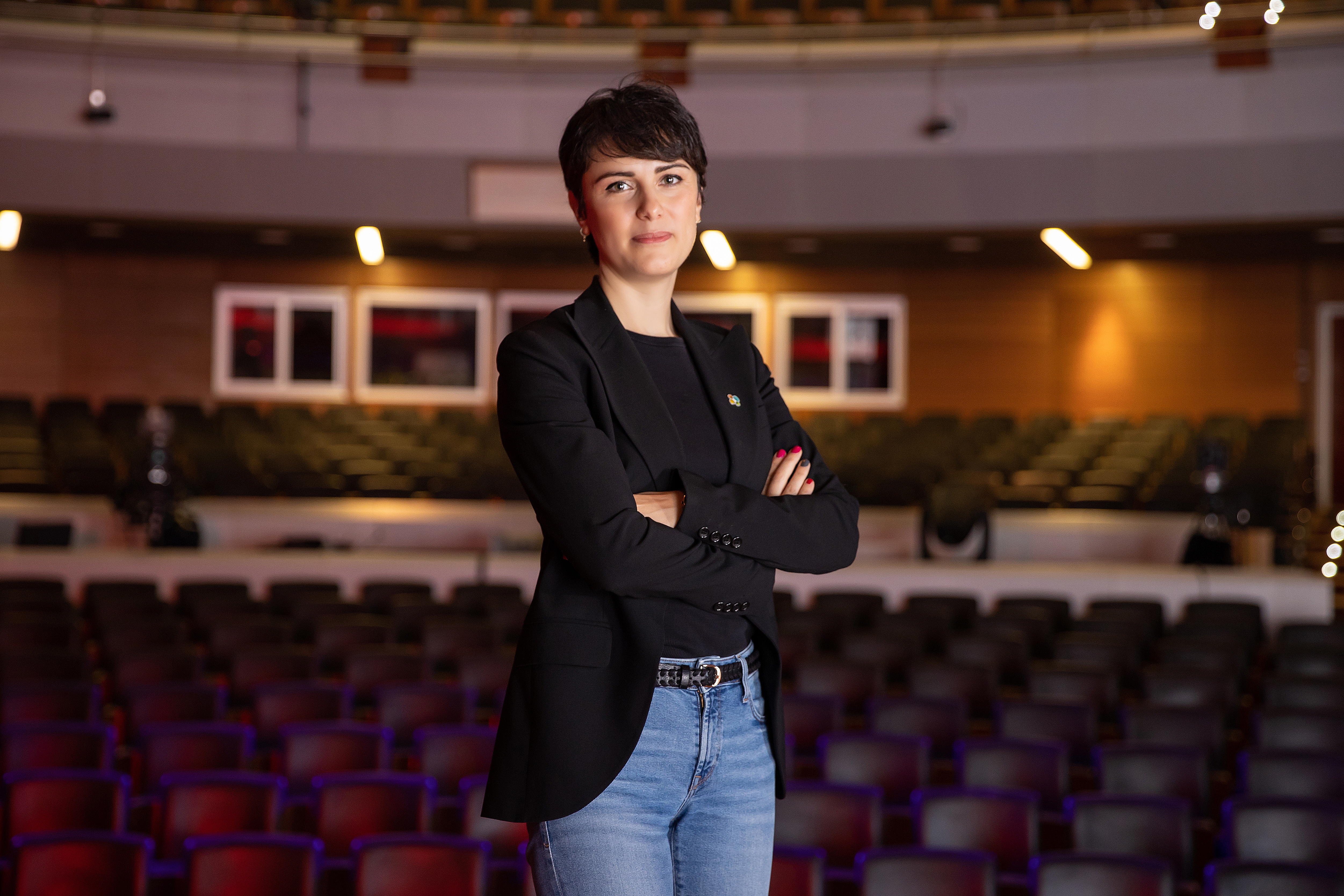Professor Derya Baran named Royal Society of Chemistry fellow

Derya Baran, KAUST associate professor of material science and engineering, named Royal Society of Chemistry Fellow in 2022, focuses her research on organic/hybrid soft materials for electronic devices, including flexible solar films. Photo: KAUST
Associate Professor of Material Science and Engineering Dr. Derya Baran, who heads the Organic Materials for Energy Applications (OMEGA) research group at King Abdullah University of Science and Technology (KAUST), has been appointed a Fellow of the Royal Society of Chemistry (RSC).
Standing as the United Kingdom's professional body for chemists, and the largest organization in Europe for advancing the chemical sciences, the RSC is one of the most prestigious scientific bodies in the world. Being appointed as a Fellow represents a major opportunity for Professor Baran to showcase her research and establish relationships with some of the globe’s most influential scientific minds.
“I am honored and happy that I have attained a level of professionalism recognized globally as an RSC Fellow,” Baran said. “Being part of RSC will allow me to meet more peers and obtain advice on my professional career. It will also open further award and recognition possibilities, as well as give me the chance to nominate early career researchers for other awards and honors.”
Building knowledge for a sustainable future
The OMEGA research group led by Baran specializes in material science and engineering works, with a particular focus in the area of solution processable organic/hybrid soft materials for electronic devices.
These are soft semiconductor materials that possess a viable platform for printed, large area, stretchable and wearable electronics that can be used as solar cells, smart windows, organic field-effect transistors (OFETs), thermoelectrics, sensors and bioelectronics.
The group broadly conducts its research across three key areas:
- Photovoltaics: Including perovskite solar cells, organic solar cells, ternary solar cells and stability and degradation of solar cells.
- Thermoelectrics: Key lines of research cover the material properties of perovskite, organic and n-type thermoelectrics.
- Printing: Chief concerns include inkjet and 3D-printed organic electronics, as well as slot-die coating.
“Energy has always been an interesting concept to me,” Baran commented, when asked why these particular areas of research appeal to her. “It was not easy as a kid to understand energy, as it was something we could not see but feel, and it was everywhere. I had no intention to work in this field until I was in my third year of undergraduate studies. What I always had in mind was to have an impact on humanity and make a change or contribute to one.”
Baran recalls a research group in Austria that got her into working on alternative energy materials and devices.
“I realized this is something I could take on as a mission to help people access and use more renewable and sustainable energy resources globally,” she continued. “Energy production has been carried so unsustainably over the centuries, and it’s time to change that with chemistry.”
This fueled her motivation to join KAUST. With Saudi Arabia historically reliant on oil for its energy production and economic output, the fact it is blessed with enormous photovoltaic potential made it the perfect place for Baran to begin her professional career. Her work since then has been described as something of a “rollercoaster,” exploring different materials and applications.
What lies ahead?
Today in the OMEGALAB, Baran and her team continue to focus on functional materials and sustainable processing methods to develop and innovate energy saving and generating technologies.
One novel application is the integration of flexible solar films in greenhouses used by KAUST startup-turned-global agritech company Red Sea (formerly Red Sea Farms), with energy saving and heat shielding technology designed to 'feed the world sustainably.’
Looking ahead, Baran is excited to be part of the RSC community, which welcomes scientists from around the world to create a stimulating culture around chemistry and the global issues it can help resolve.
“Climate change is a fact, and sustainability is at the core of my heart,” she said. “I am so glad that we have come to a point where not only scientists but also governments and the wider community are aware of it and working toward solving these issues.”
She said that her ultimate ambition is to leave a better world for the next generations.
“My work could make a difference by finding alternative and new functional materials and sustainable processes that could save and perhaps also store energy, saving water and food indirectly.”

